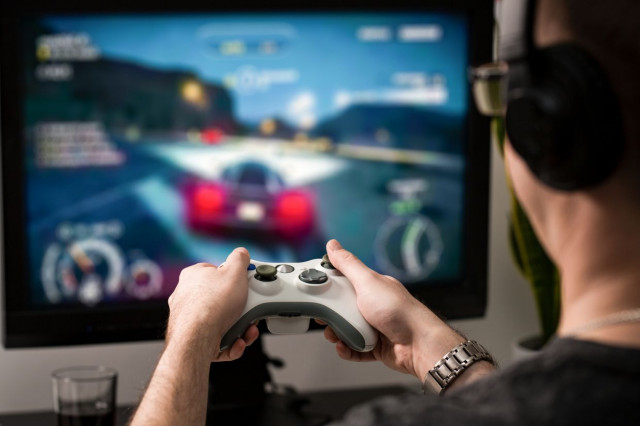Video gaming as a child related to improvements in memory
Video games may lead to cognitive changes that last for years even after people have stopped playing games

A new study suggests that playing video games as a child can improve a person’s working memory years later on specific tasks.
Video gaming could actually be beneficial for both cognitive and emotional skills, the study revealed.
Transcranial magnetic stimulation
This study combined video game playing with transcranial magnetic stimulation (TMS), a non-invasive form of brain stimulation that scientists have studied as a treatment for mood disorders.
The researchers wanted to figure out whether playing video game training and TMS could enhance cognitive function more than either element alone.
Playing video games boosts literacy, mental wellbeing in children
They questioned 27 healthy volunteers, with an average age of 29 years, to take part in 10 video game training sessions, during each of which they played “Super Mario 64” for an hour and a half.
At the end of each session, the researchers applied TMS to part of the prefrontal cortex, which is at the front of the brain and is important for complex cognitive functions, such as working memory and reasoning.
The researchers assessed the cognitive function of the participants before the study started, at the end of the 10 sessions, and 15 days after this.
Researchers analysed a range of cognitive functions, including reaction time, working memory, attention span, visuospatial skills, and problem-solving.
Even though the results showed very limited changes in cognitive ability, which seemed to result only from the video game training and not the TMS, the researchers did find evidence that participants with early experience of video gaming had improved working memory.
“People who were avid gamers before adolescence, despite no longer playing, performed better with the working memory tasks, which require mentally holding and manipulating information to get a result,” explains lead author of the study Dr Marc Palaus, Ph.D.
“People who played regularly as children performed better from the outset in processing 3D objects, although these differences were mitigated after the period of training in video gaming when both groups showed similar levels,” adds Dr Palaus.
Playing video games boosts literacy, mental wellbeing in children
Video games may lead to cognitive changes that last for years even after people have stopped playing games.
Further, according to Dr Palaus, video games also provide motivation; player wants to keep on playing and challenge the brain to solve problems, which makes it ideal for boosting cognitive ability.
“Video games are a perfect recipe for strengthening our cognitive skills, almost without our noticing, ” says Dr Palaus.
Similarly, another study conducted by researchers from the Universitat Oberta de Catalunya in Barcelona trained volunteers to play “Super Mario 64” a game that researchers have previously shown to induce structural changes in parts of the brain associated with executive function and spatial memory.
This study revealed that people who played video games as children had a better working memory than those who did not, suggesting that video games can have long-lasting benefits for cognition.
One survey even revealed that playing video games has a positive impact on children’s mental health and may actually improve their literacy and communication skills.
Online gaming is a community, which brings people around the world together which according to researchers brings in the "shared cultural experience" element.



















COMMENTS
Comments are moderated and generally will be posted if they are on-topic and not abusive.
For more information, please see our Comments FAQ